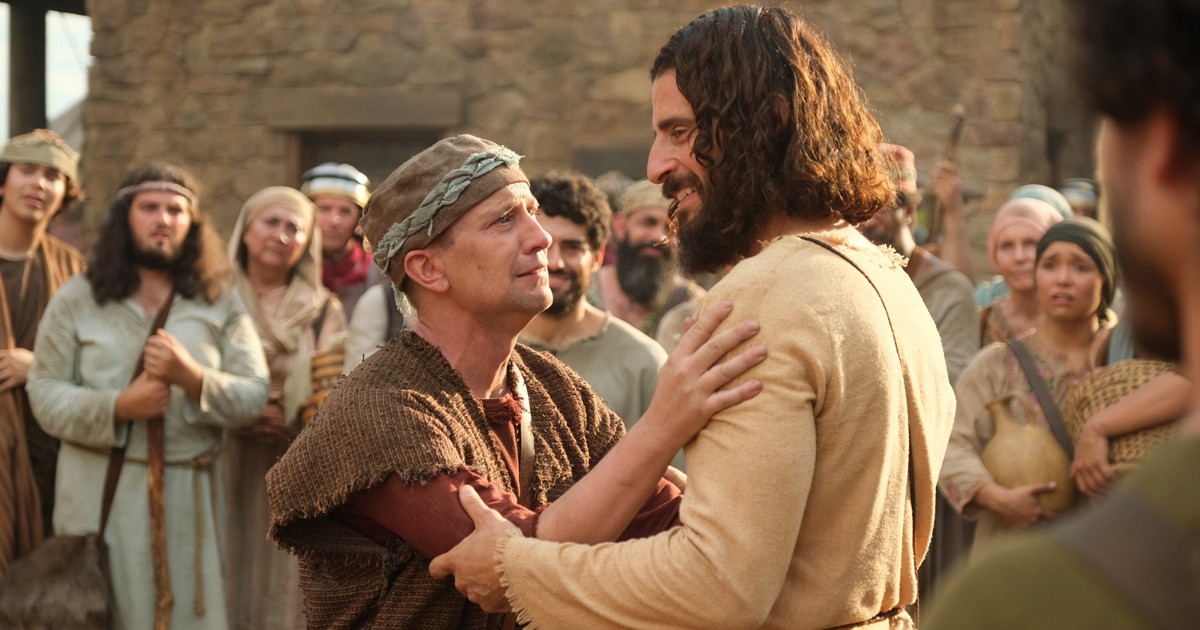Recently, a lunchtime conversation with cadets and colleagues from the College for Officer Training (CFOT) turned to The Chosen, the historical drama about the life of Jesus, which streams online and is currently in its fourth season (see our interview with director Dallas Jenkins here). One of the cadets had mentioned the show favourably in the devotions she led that morning, and those of us unfamiliar with it (me included) were asking questions.
Another colleague encouraged me to check it out. “It’s good,” she said.
“Is it good, good?” I asked. “Or is it Christian good?”
I’ve never shied away from expressing my opinions and reservations about Christian media. While I hold many Christian writers and artists in high regard (such as C.S. Lewis, J.R.R. Tolkien, Flannery O’Connor, P.D. James and Ron Hansen, to name a few), I have always been suspicious of works that try to shoehorn a Christian message into the narrative at the expense of quality storytelling.
I think I come by this honestly. Growing up in the church in the B.V.T. (before VeggieTales) era, I saw every sort of bad Christian movie—from the innocuous and pathetic to the grossly manipulative (anyone remember A Thief in the Night?). Even the best-intentioned of these were plagued by poor production values and amateurish acting, making them vastly inferior to the movies and TV shows my friends were watching. In fact, one especially terrible film from my youth group days has become a 35-year-old inside joke between me and my former youth leader.
Today, with a PhD in literature and film studies, I’ve been invited to a few Christian film festivals and have sat through terrible comedies and dramas with clichéd, paint-by-number plots, where everything gets resolved in ways so fantastical that Tolkien would be jealous.
But after a few CFOT personnel recommended The Chosen, I watched a few episodes.
And it is good, good. The highest praise I can give it is that I wish the show was around when I was in youth group! The Chosen is well made, with solid acting and production values. While it takes some artistic liberties—adding backstories to various characters and “filling out the story”—such changes are necessary when adapting a narrative from a written account to a visual medium.
Other than being generally pleased (and pleasantly surprised) with the quality of The Chosen, I didn’t give it much more thought until the CFOT staff took part in a spiritual retreat day. In the afternoon, we learned about different prayer practices, including the ancient practice of visio divina (divine seeing). Like the perhaps more familiar lectio divina (divine reading), visio divina also involves encountering God’s presence, but through meditating on an image or a picture, or imaginatively reflecting on a scene from Scripture. Visio works best with narrative passages, where you can “see” and “hear” the details of the story. It’s a different way of experiencing Scripture and can, at its best, open us up to new insights we might miss when just reading the text.
How does the story of Zacchaeus (see Luke 19:1-10) strike us when we use our imaginations? Can we see a small man, jostled and pushed in the crowd? Can we see him standing on his tiptoes, struggling to see over the shoulders of taller men? Can we imagine how anxious, how desperate he is to see Jesus?
How does the story of Jesus washing his disciples’ feet strike us differently when we imagine Peter’s robust enthusiasm and intensity when he tells Jesus, “Then, Lord, not just my feet but my hands and my head as well!” (John 13:9)? How might the other disciples have taken Peter’s statement? Would they nod reverently or roll their eyes at Peter tripping over himself to be the teacher’s pet?
At the retreat, one of the passages we were invited to reflect on using visio divina was a story I had just seen dramatized in The Chosen. And, while I pride myself on an above-average imagination, I found myself using the visuals from the show as my starting point. The scene I pictured was prompted by their visualization of the story.
As I continued my reflection, I added elements, trying to paint the scene more vividly. I started to replay the scene, imagining different tones and attitudes of the characters, different “line readings” of their dialogue. What was Jesus feeling when he said this? Was he sad, angry, exasperated? How was he standing when he said these things? Did he stand close to his disciples? Did he touch their arms or shoulders as he talked to them? How would different moods or positions affect my understanding of this passage?
In the days following the retreat, I have found myself meditating on this passage from the Gospel of John. Similarly, I’ve been reflecting on how shows such as The Chosen can make an impact on our spiritual formation, particularly considering the recent release of the Netflix show, Testament: The Story of Moses. Could there be some spiritual value in these biblical shows beyond simply telling a good story? Could they help us engage our imaginations in praising our Creator and opening ourselves up to God’s message?
Dr. Michael W. Boyce is the director of program implementation at the College for Officer Training in Toronto.










Leave a Comment